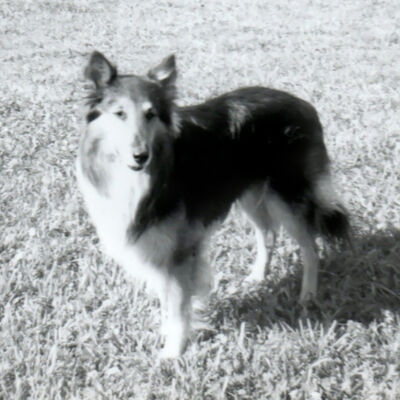Does everyone 'photoshop' their photos?
May 14, 2019 09:56:19 #
Yes. Every raw file needs processing. Your camera does the same for you and saves as a jpeg only you are at the mercy of the camera processing.
Your eye sees things much different than a camera sensor will.
Your eye sees things much different than a camera sensor will.
May 14, 2019 09:59:08 #
the 2 basic thing , is cropping and adjust the brightness .that you used to do for printing from film . on digital , you can also add some color saturation . i dont do more then that .[ picasa 3 ]
May 14, 2019 10:01:29 #
jackpinoh
Loc: Kettering, OH 45419
unduki wrote:
This might seem like a dumb question, but it's how... (show quote)
I don't think you're too myopic. But you may have a poor memory (or just take pleasure in criticizing "the other"). Not post-processing you images does not make you a better photographer.
Fact: Your camera captures significantly less dynamic range and has different color sensitivity than your eyes. Different sensors and different lenses produce different color casts as well. What you see on your screen (even when it is calibrated) is not what you saw with your eyes. But you can post-process your images to better reflect the colors and dynamic range of tones that were present in the scene you photographed.
If you are happy with the image you see on your screen or in print, don't bother processing your photos. Some people don't post-process. Some people post-process to create images they believe to be beautiful. You only need to please yourself. Why should it bother you if others are post-processing? Beauty is a matter of opinion. In matters of opinion, there is no dispute.
May 14, 2019 10:02:38 #
DAN Phillips wrote:
Personally, I would rather see SOOC than overcooked unreality!
I agree. Unfortunately, some folks think that the photo has to look crunchy! Post processing should usually be done, but the result should not make it look obvious that it was post processed. Just do enough to get white balance acceptable, sharpening that doesn't over do it, and bring out detail in shadows and highlighted areas.
May 14, 2019 10:04:58 #
Why take pictures if your not going to enjoy them. PP is how I enjoy my photography. Any picture worth looking at twice is worth post processing. My worst pictures are those that can't be improved SOOC. Fortunately, I've never gotten one perfect out of the camera. The exception are those taken for documentation only, like picture of paint cans, lawn mower make and model, toilet make and model etc etc.
For me, all other pictures are like art, I could care less what my eyes saw then, I want my eyes to enjoy making it into something they like now. If I really like the result, it gets a spot on my desk top background slide show for a while.
For me, all other pictures are like art, I could care less what my eyes saw then, I want my eyes to enjoy making it into something they like now. If I really like the result, it gets a spot on my desk top background slide show for a while.
May 14, 2019 10:05:18 #
olemikey
Loc: 6 mile creek, Spacecoast Florida
unduki wrote:
This might seem like a dumb question, but it's how... (show quote)
If your camera with your settings gives you what your eyes saw, mission accomplished. If you want the photo to look a bit different than the SOOC, then do a little processing, or a combo of processed and SOOC (two files). Depending on camera model, it may do some monor PP (your manual would describe that) internally, and the JPEG is the product of internal processing.
RAW is data and has not yet been processed, so it may not yet look like what you saw, but you can make a fine picture, or fine art (generally) from the RAW data, and should be able to make it look exactly like what you saw. I do a bit of both, fun and enjoyable, no messy chemicals to deal with, and I think folks do learn more about the craft overeall from PP works and results.
I have many SOOC shots that I'm happy with because it was captured just the way I saw it (minds eye), but I also do a fair amount of PP with many. Often times there are at least two versions of anything I've shot (sometimes multiple versions), huge files are cheap and easy these days, and PP can also be cheap and easy, depends on what you want to do, and use for the PP.
This type of question usually results in many pages of opinions, BOTTOM LINE - IT IS UP TO YOU, THEY ARE YOUR PHOTOS, DO WHATEVER SUITS YOUR FANCY, and try to have fun doing it!!!!
.


May 14, 2019 10:38:32 #
unduki wrote:
This might seem like a dumb question, but it's how... (show quote)
You can create any look you want. Learn the tools by testing one variable at a time. Then knock yourself out getting the scene to portray what YOU "see". If that's a reflection of reality, that's fine. If it's something from your mind's eye, that's fine, too.
May 14, 2019 10:39:45 #
Unduki, speaking for myself, rather then 'change' color, light, etc. I feel that what I do in Photoshop is create the photo as I actually saw it, and if that takes 'photoshopping' it, then so be it. Many times, just by 'clicking' the camera when it's aimed at the subject you admire.... the results are not quite what you saw. Then that's when Photoshop is most handy.
ALSO, there are many times one uses 'photoshopping' methods to enhance an otherwise blag scene. Imagination is the limit and as many have expressed here, it's 'art' and it's YOUR art, so do with it as you see fit. Just my humble opinion.
God Bless,
Papa Joe
ALSO, there are many times one uses 'photoshopping' methods to enhance an otherwise blag scene. Imagination is the limit and as many have expressed here, it's 'art' and it's YOUR art, so do with it as you see fit. Just my humble opinion.
God Bless,
Papa Joe
May 14, 2019 10:40:28 #
I am that kind of person who likes pastel colors and try to keep the subjects as natural as possible. Understand that a RAW data is a dull or tends to be a dull image till editing is done and a classic example is a sunset where you will hardly see all the colors you saw in the original scene.
What I am saying is that a properly set of parameters in camera will or should yield the results you like in your JPEG files but when using RAW data it is a totally different story because the data will come alive only after editing. Your skills play a big role here.
If you want to enhance your images even more then Photoshoping is required or one of those softwares like Topaz Adjust 5 that offers different parameters and presets to manipulate the images to your taste.
What I am saying is that a properly set of parameters in camera will or should yield the results you like in your JPEG files but when using RAW data it is a totally different story because the data will come alive only after editing. Your skills play a big role here.
If you want to enhance your images even more then Photoshoping is required or one of those softwares like Topaz Adjust 5 that offers different parameters and presets to manipulate the images to your taste.
May 14, 2019 10:48:57 #
unduki wrote:
This might seem like a dumb question, but it's how... (show quote)
======================
I use Corel Paint to adjust the colors, brightness, ect. and try to get my photo to as neer to what I saw with my eyes. I don't try for something greater then what I actualy saw with my eyes.
May 14, 2019 11:21:13 #
Photos should be marked as post processed. It would be informative to see the original next to the photoshopped picture. Some people are good with the camera while some are good with post processing.
It is not a new approach, after all some of Ansel Adams photos were post processed even though photoshop was not available. His work goes without comment.
"No man has the right to dictate what other men should perceive, create or produce, but all should be encouraged to reveal themselves, their perceptions and emotions, and to build confidence in the creative spirit". Ansel Adams.
It is not a new approach, after all some of Ansel Adams photos were post processed even though photoshop was not available. His work goes without comment.
"No man has the right to dictate what other men should perceive, create or produce, but all should be encouraged to reveal themselves, their perceptions and emotions, and to build confidence in the creative spirit". Ansel Adams.
May 14, 2019 11:25:00 #
I just use Lightroom and have not really learned PS yet. My photos are mostly for me, and I prefer lightly processed for myself. Others have different visions for their art and on UHH I get to enjoy all the different variations even if I don't try them.
May 14, 2019 11:32:44 #
nadelewitz
Loc: Ithaca NY
Bobspez wrote:
I've never shot the aurora borealis but I do process every picture I take. One thing to consider is that no picture ever looks exactly like what your eyes see. With digital (but not with film like velvia 50) the blue sky always looks paler in the pictuure than it does to my eyes. Things are often not as colorful or bright as my eyes see them. So I post process to try to capture the look that I recall seeing when I took the picture.
The "look you recall" may have little to do with the image you saw at the time of taking the picture.
The human eye/brain are very good at matching colors side-by-side, but MEMORY of colors is not at all reliable.
So you can't honestly say that what you produce in post-processing matches or comes closer to the scene you shot, unless dealing with extreme color shift. All you can say is that your processed image is more "pleasing". Entirely subjective.
This is color perception SCIENCE, not my personal opinion.
May 14, 2019 11:33:22 #
oldfaithful wrote:
Photos should be marked as post processed. It wou... (show quote)
I guess I'm thinking that there is no such thing as original. Even if you don't use raw, the camera does, and it post processes according to what you have set. If you set automatic, the camera decides how much sharpening, saturation, etc. To apply. Isn't it worse to give all control to the camera software compared with deciding for yourself?
May 14, 2019 11:53:40 #
camerapapi wrote:
Understand that a RAW data is a dull or tends to be a dull image till editing is done and a classic example is a sunset where you will hardly see all the colors you saw in the original scene.
This not the case when working with Canon's raw files an d Canon's DPP image program.
Mike
If you want to reply, then register here. Registration is free and your account is created instantly, so you can post right away.






